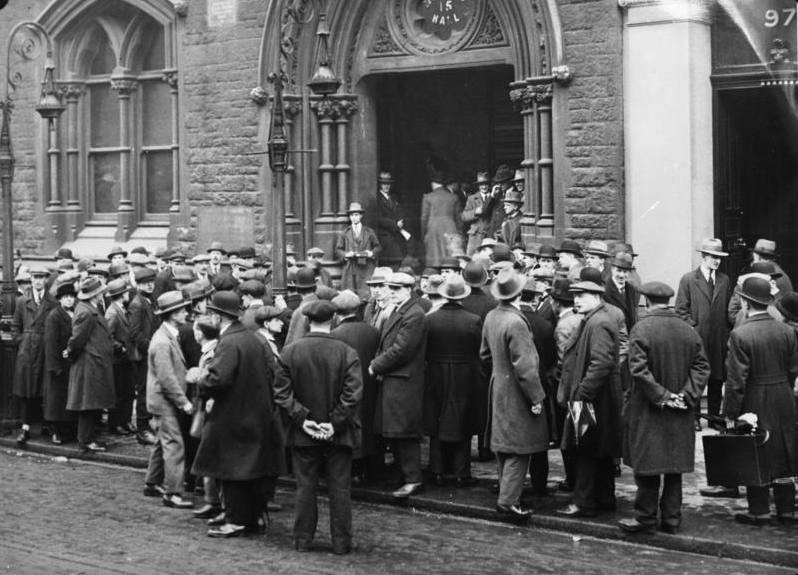Nazi Electorial Tactics
Adolf Hitler and the Nazis waged a modern whirlwind campaign in 1930 unlike anything ever seen in Germany. Hitler traveled the country delivering dozens of major speeches,
attending meetings, shaking hands, signing autographs, posing for pictures, and even kissing babies.
Joseph Goebbels brilliantly organized thousands of meetings, torchlight
parades, plastered posters everywhere and printed millions of special edition Nazi newspapers. Germany was in the grip of the Great Depression with a population suffering
from poverty, misery, and uncertainty, amid increasing political instability. For Hitler, the master speech maker, the long awaited opportunity to let loose his talents on
the German people had arrived. He would find in this downtrodden people, an audience very willing to listen. In his speeches, Hitler offered the Germans what they needed most, encouragement, and gave them heaps of vague promises while avoiding the details. He used simple catchphrases, repeated over and over.
Hitler's campaign appearances were carefully staged events. Audiences were always kept waiting, deliberately letting the tension increase, only to be broken by solemn processions of Brownshirts with golden banners,
blaring military music, and finally the appearance of Hitler amid shouts of "Heil!" The effect in a closed in hall with theatrical style lighting and decorations of swastikas was overwhelming and very catching which led many
to vote for the Nazi Party.
Hitler's Appointment as Chancellor
The January 1933 appointment of Adolf Hitler as chancellor was the dagger through the heart of Weimar democracy. Yet just a few months before Hitler's appointment seemed unlikely.
The man whose approval was required for Hitler to become chancellor, president Paul von Hindenburg, had a low regard for the NSDAP leader and no desire to appoint him as head of government.
It took weeks of intriguing, rumour-mongering and lobbying before Hindenburg, by then showing signs of senility, changed his mind. Due to this decision, Adolf Hitler was appointed chancellor of the Germany government.
